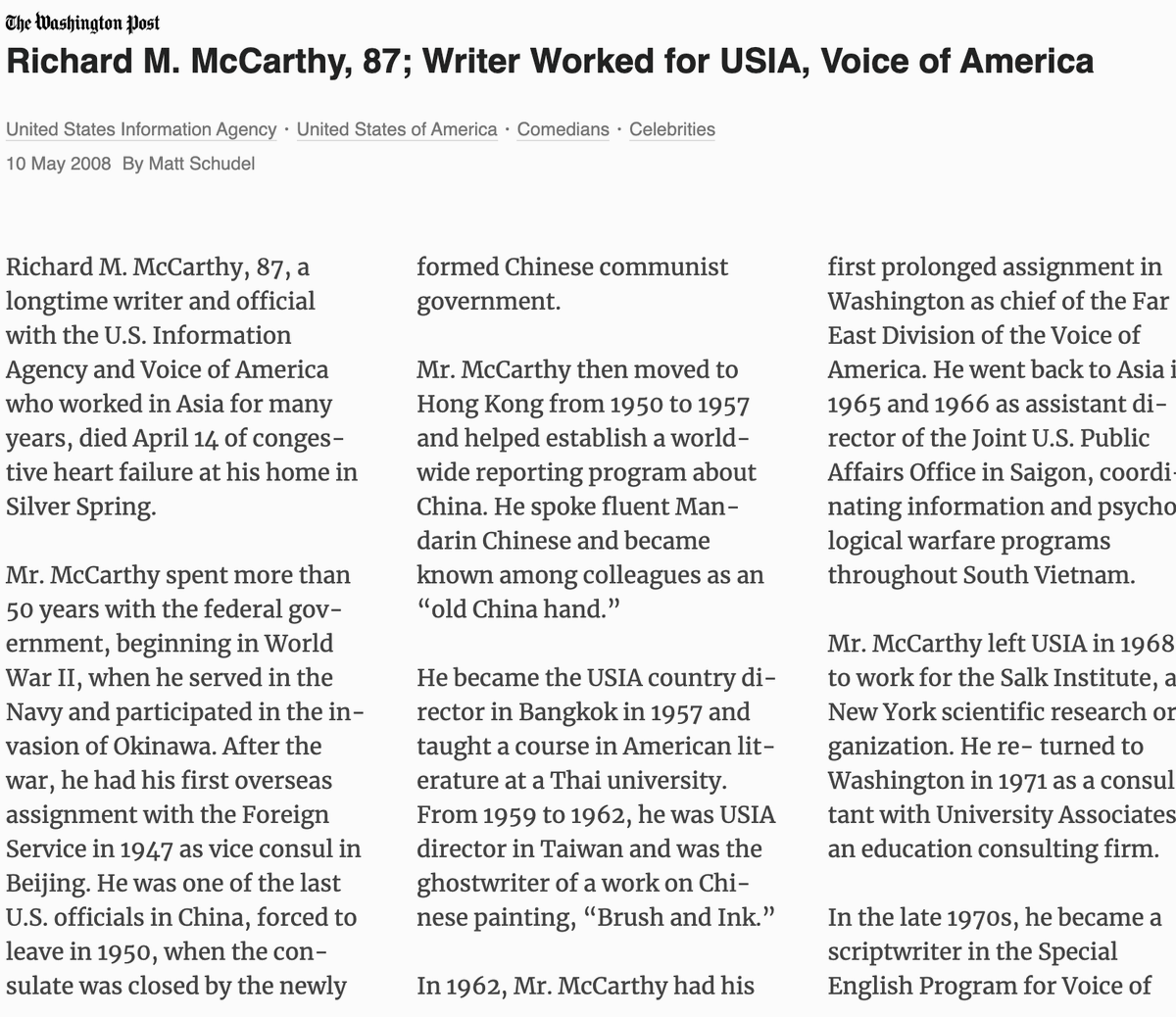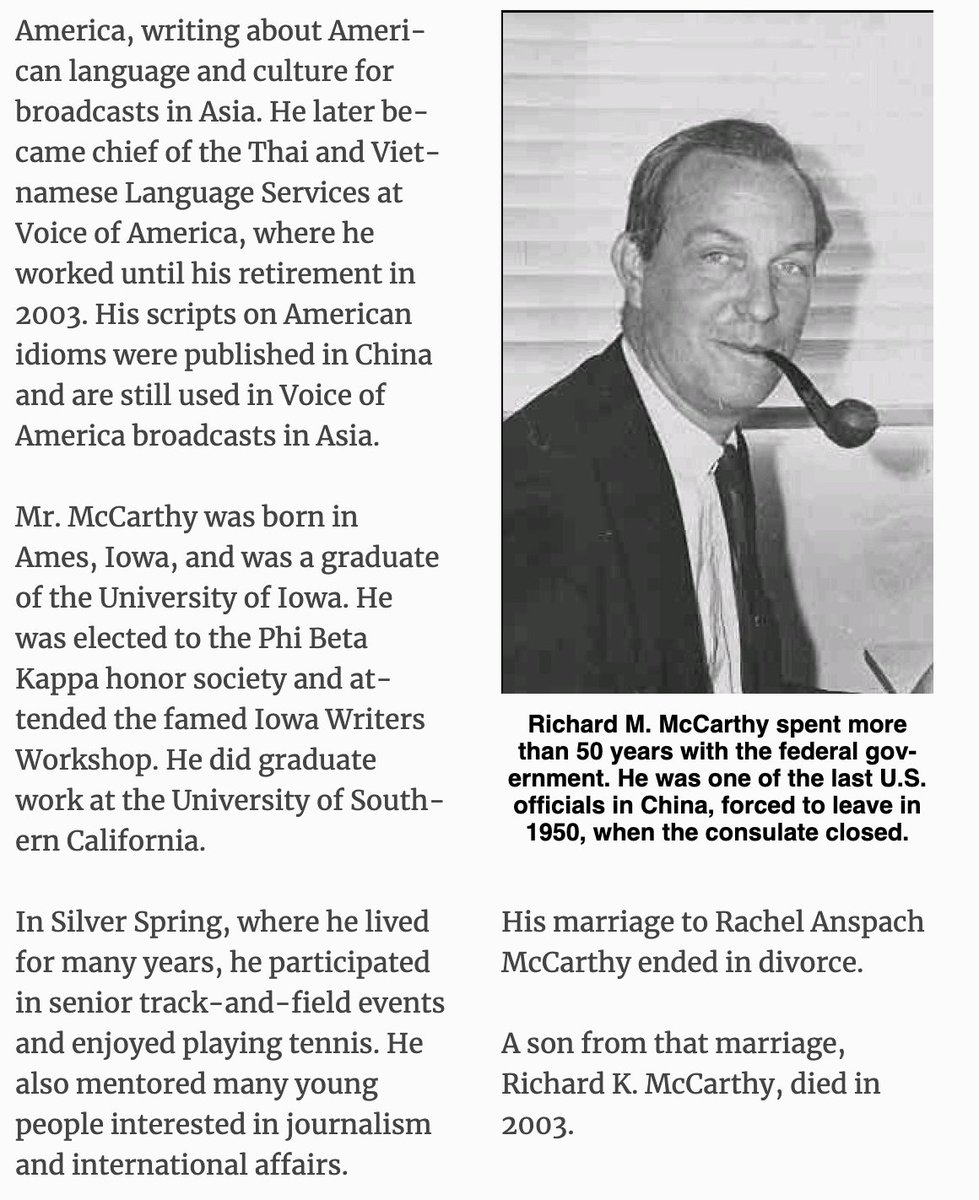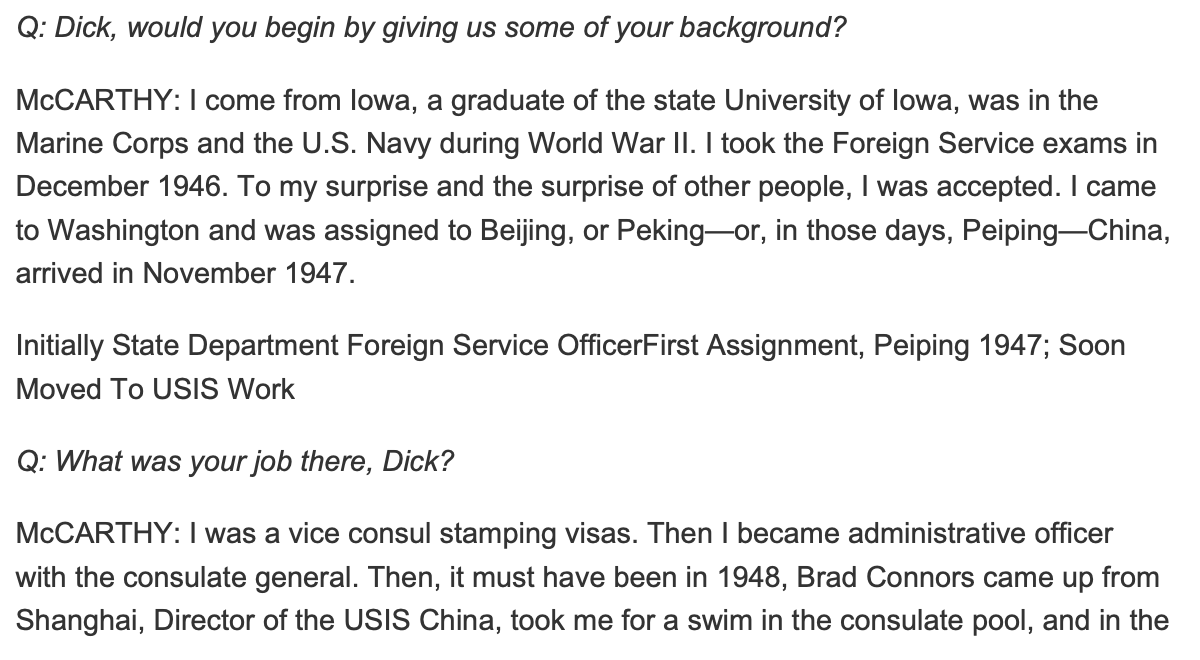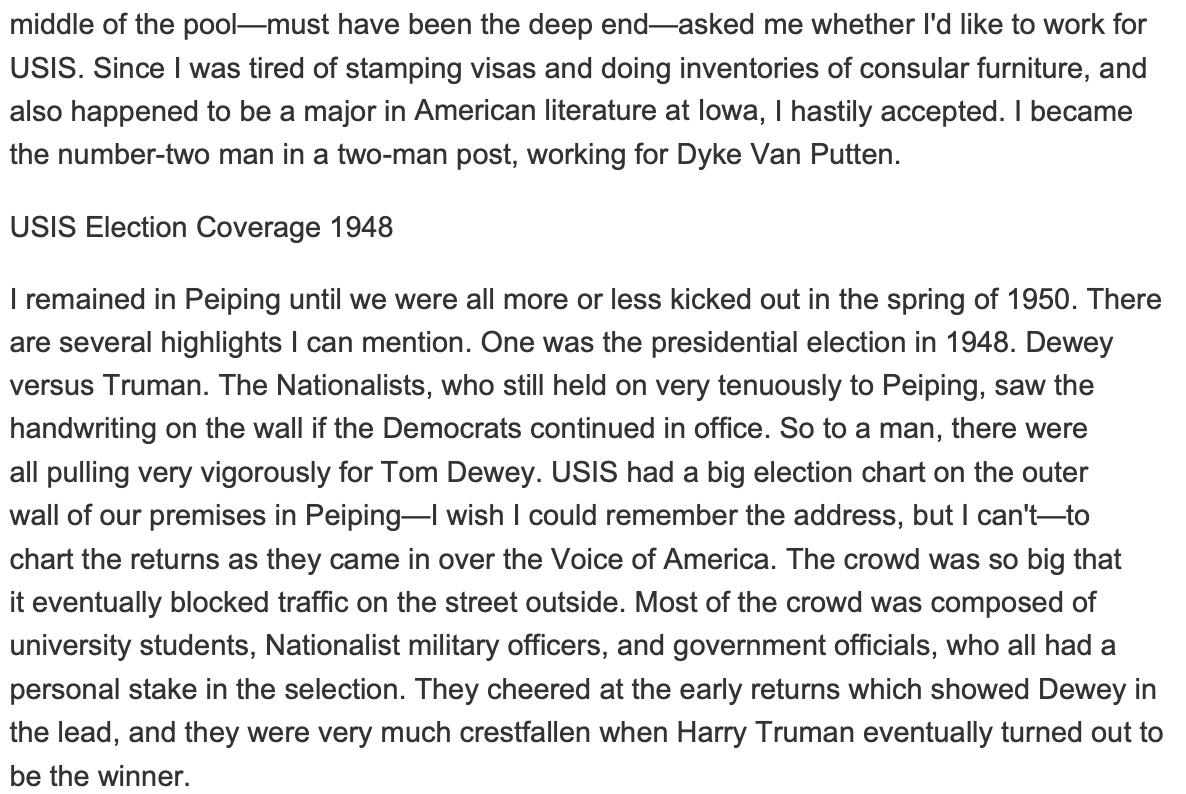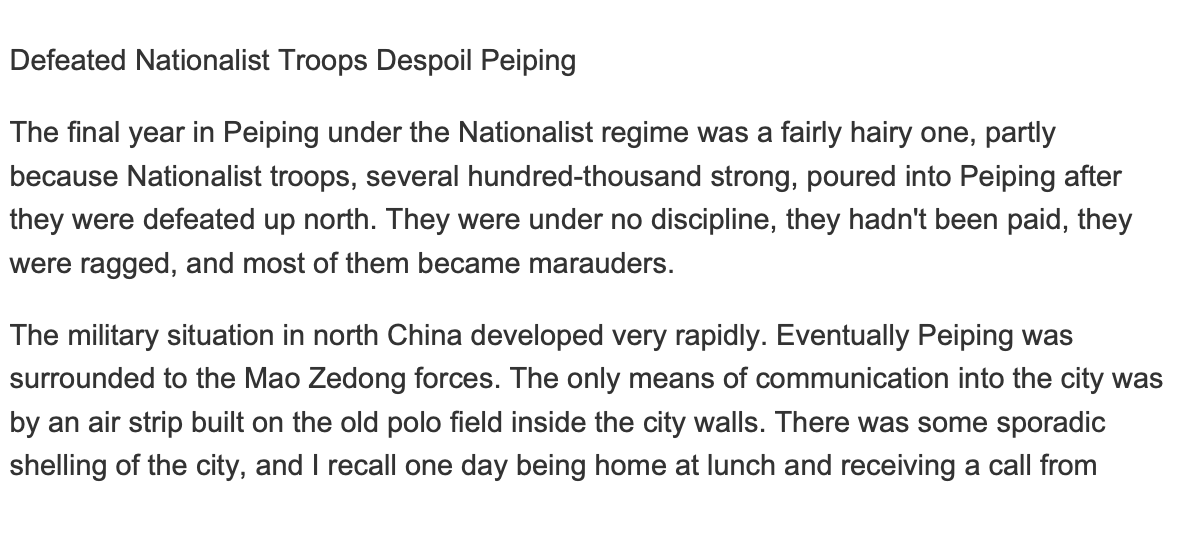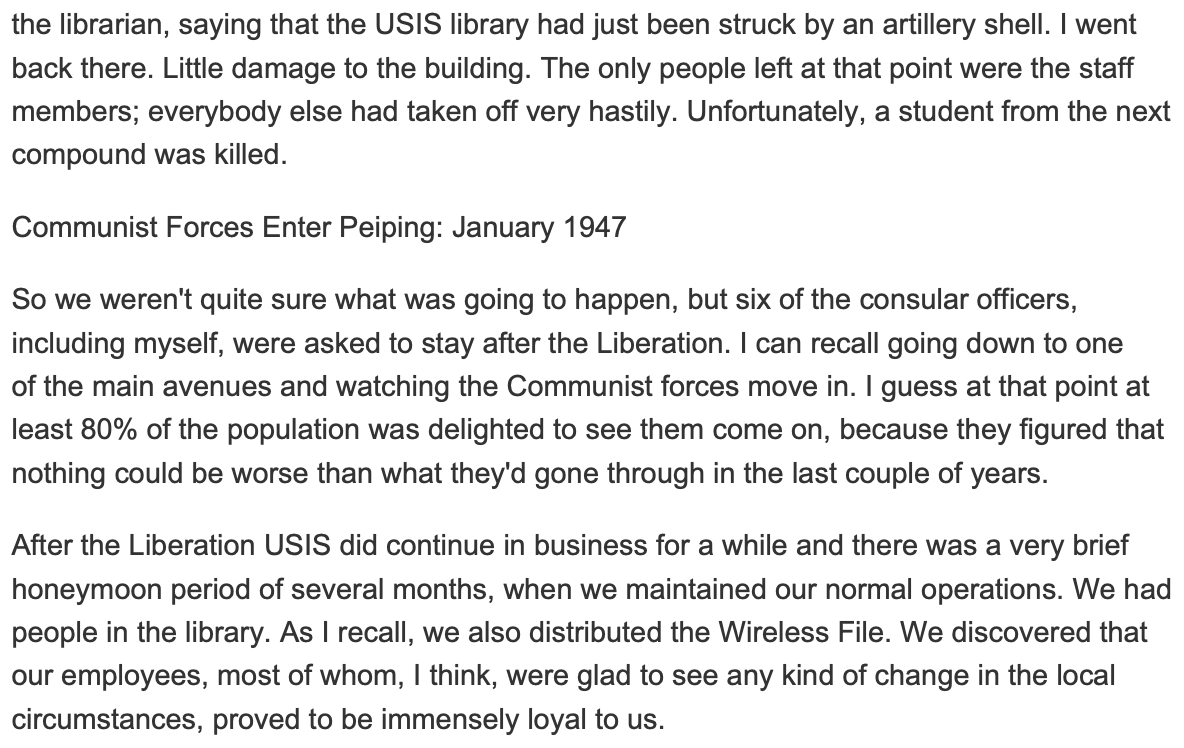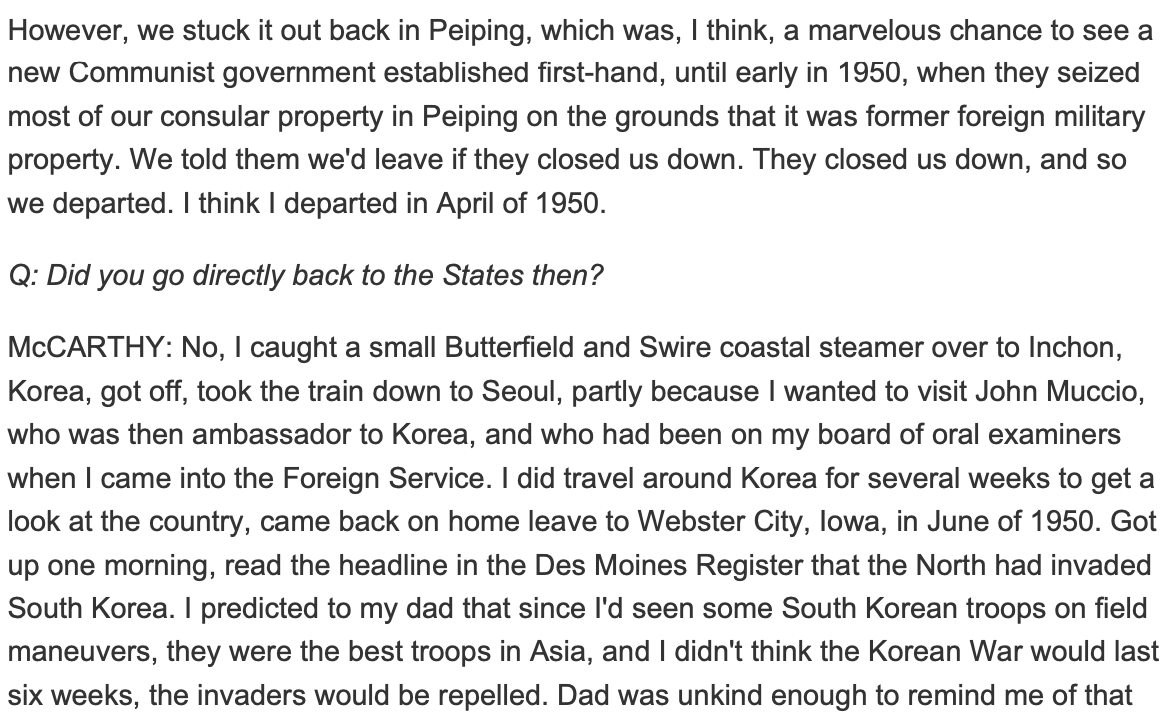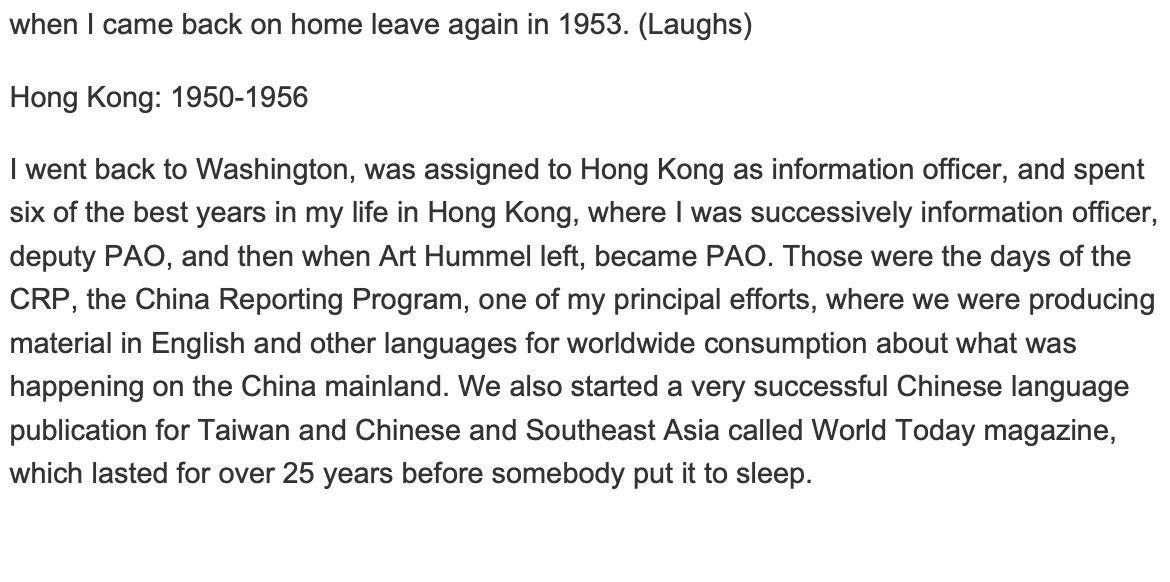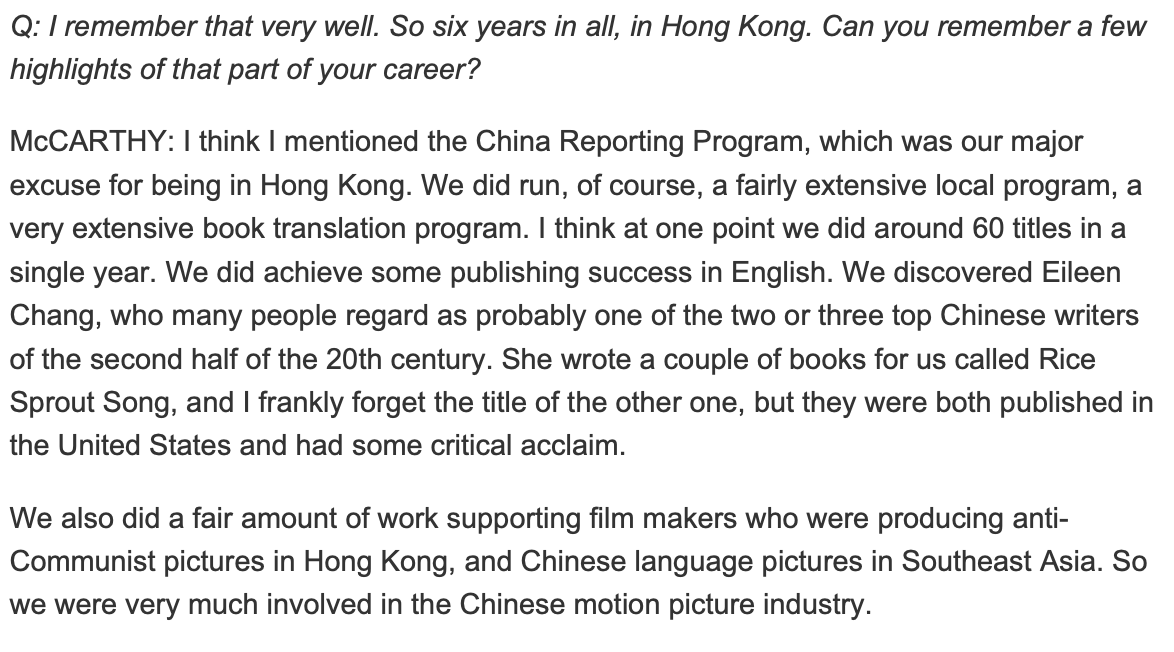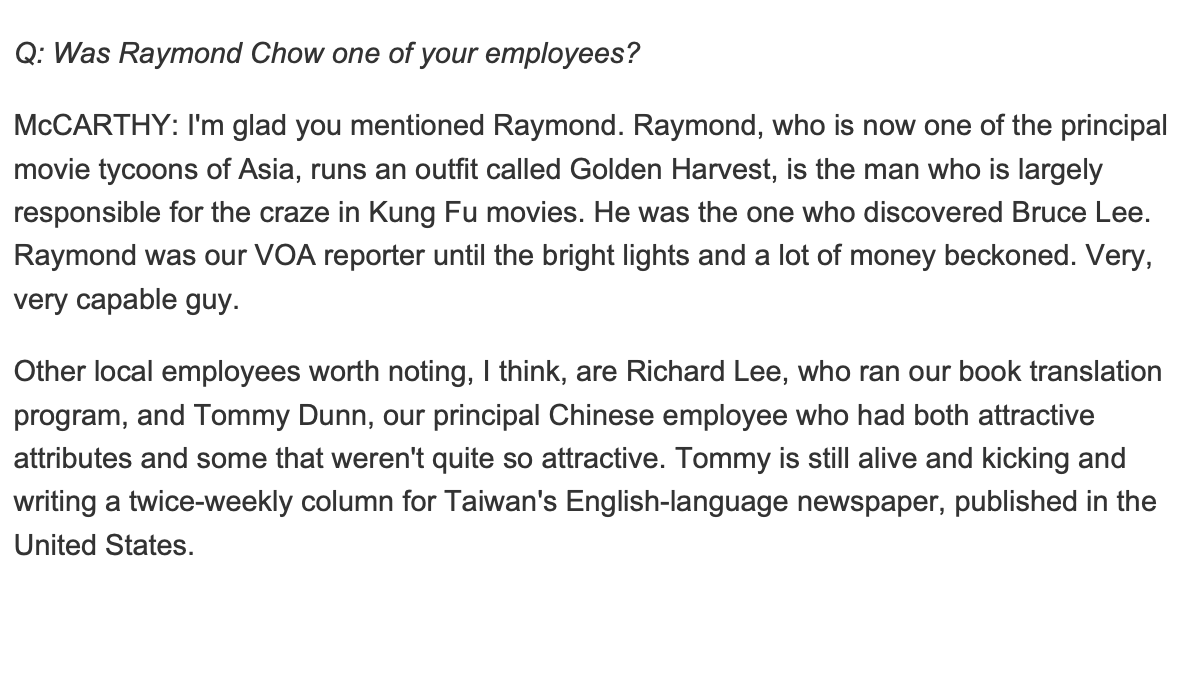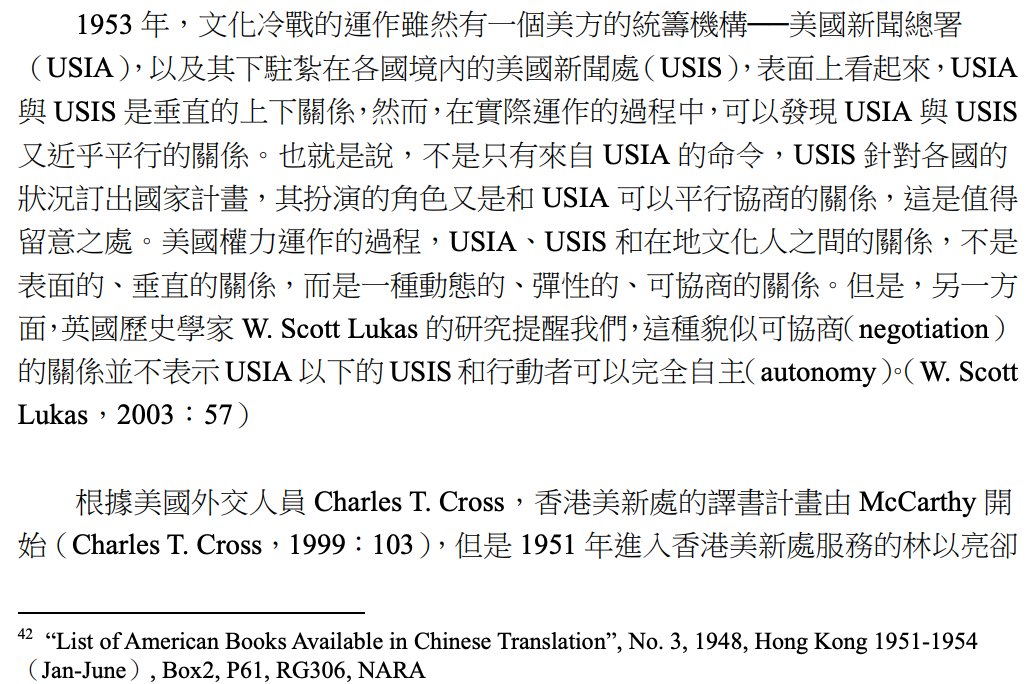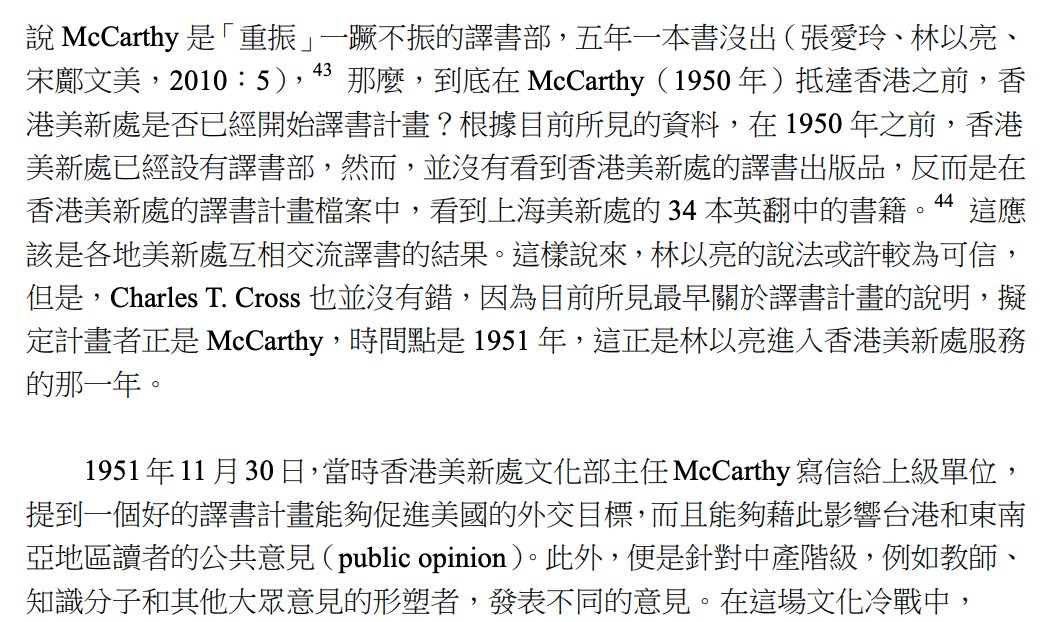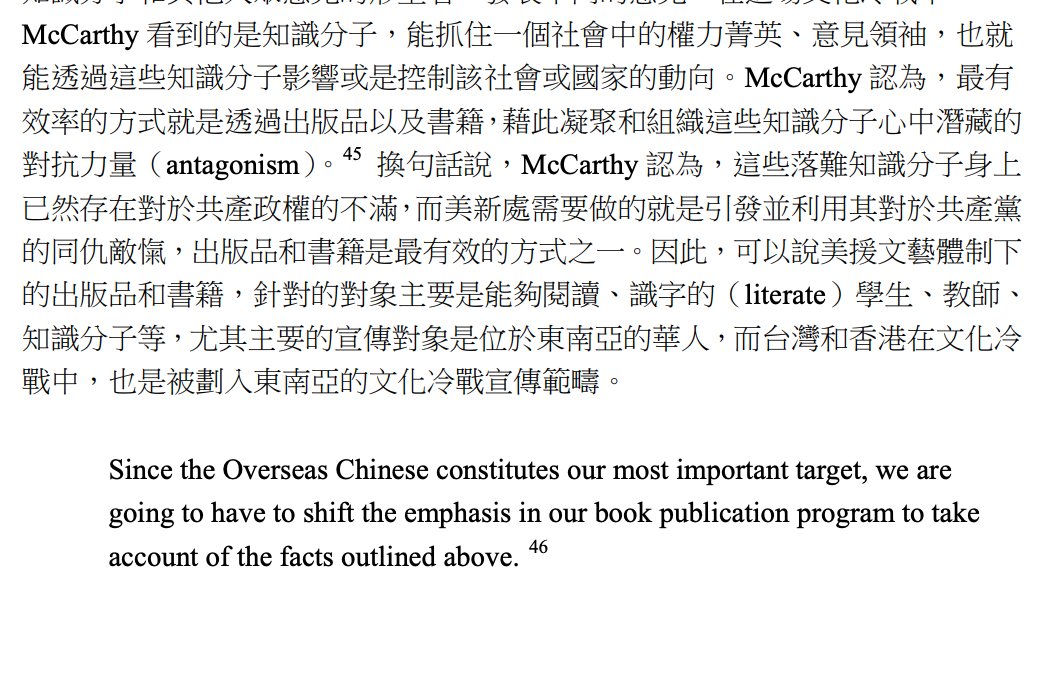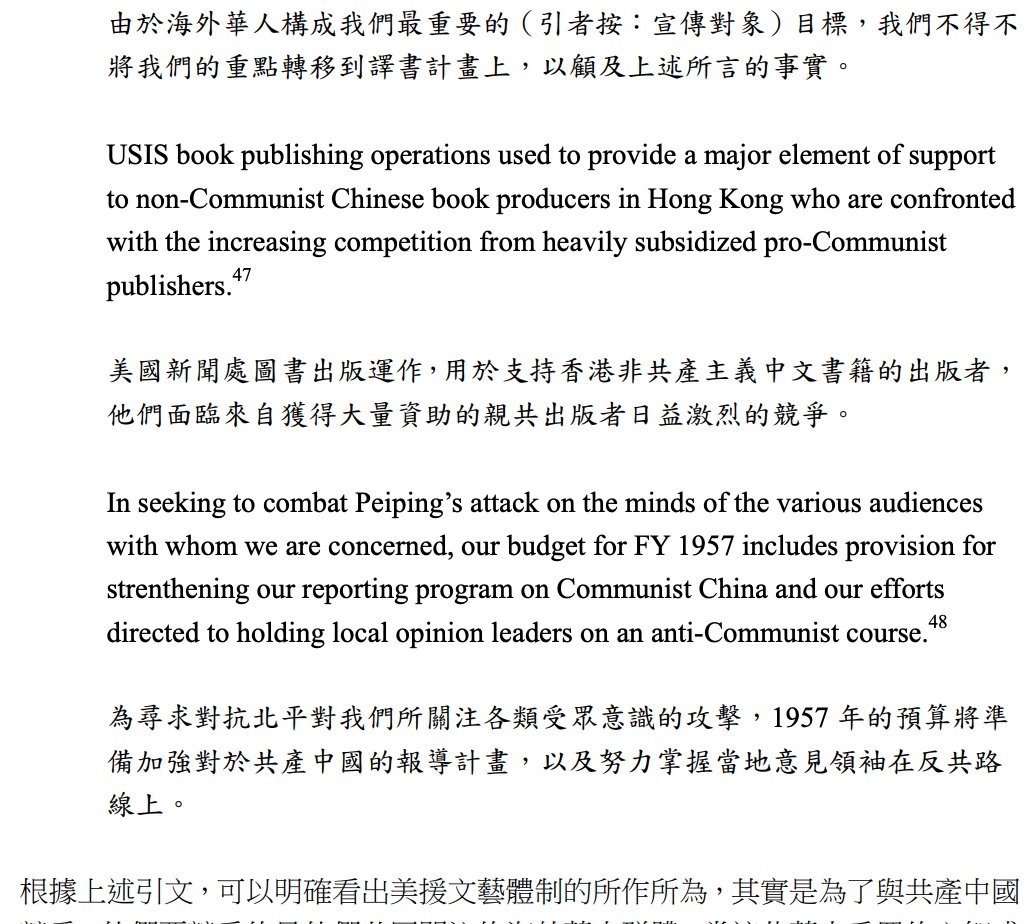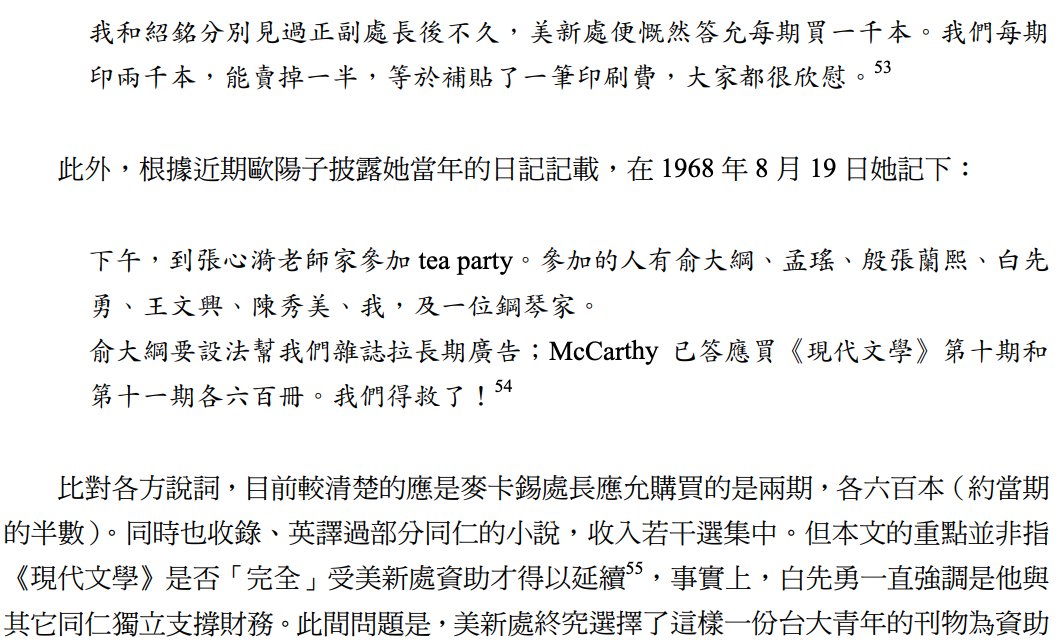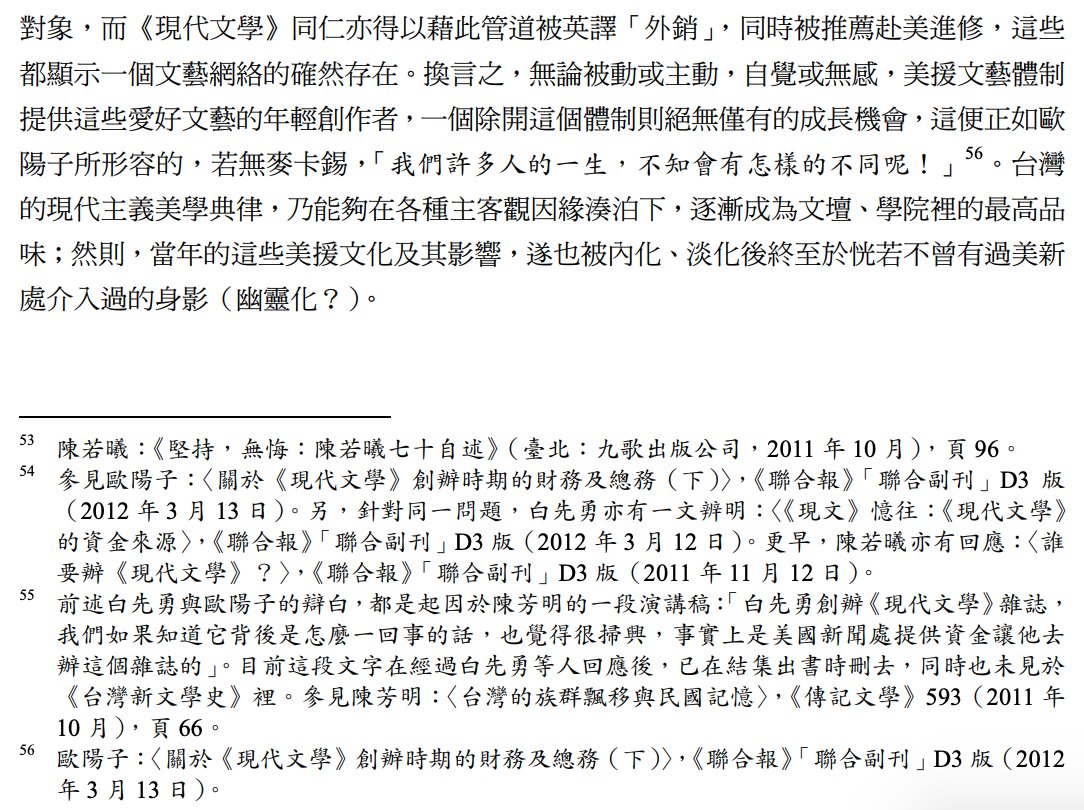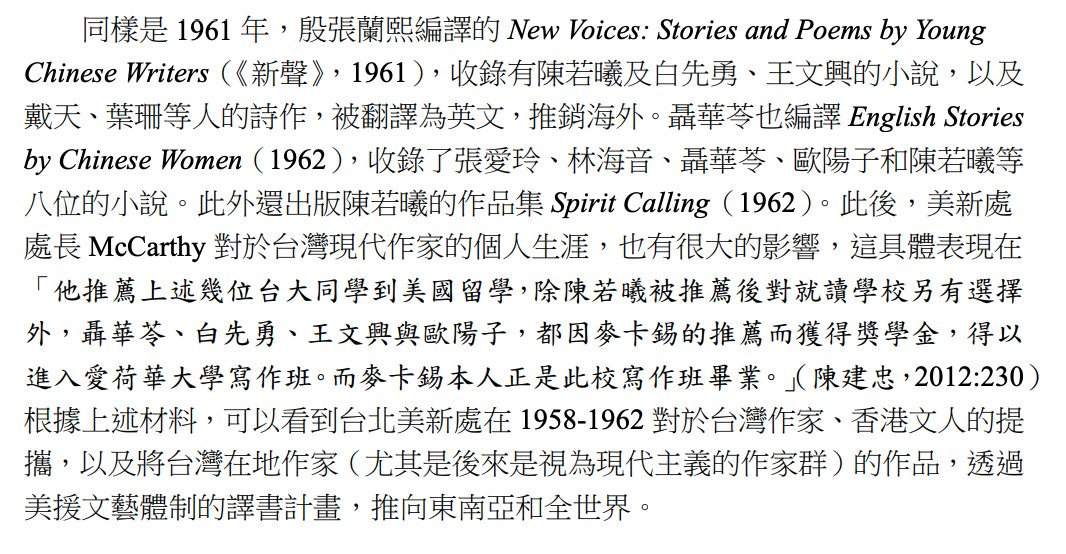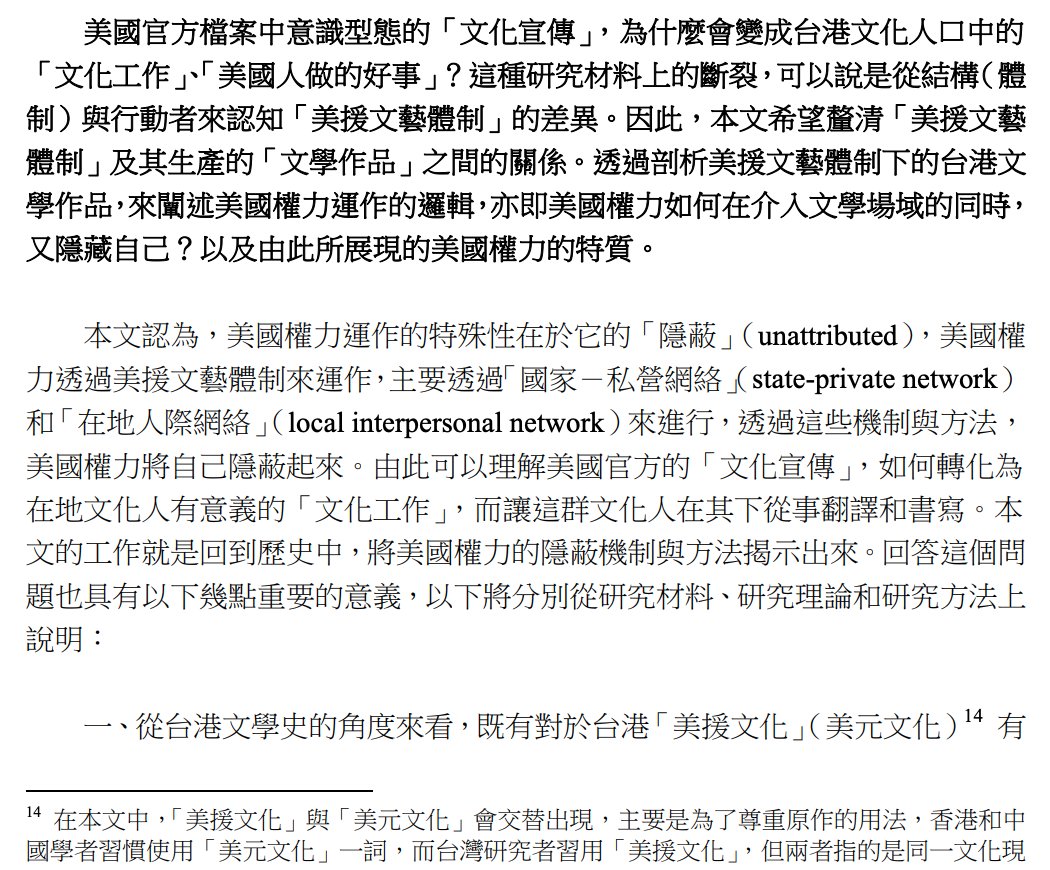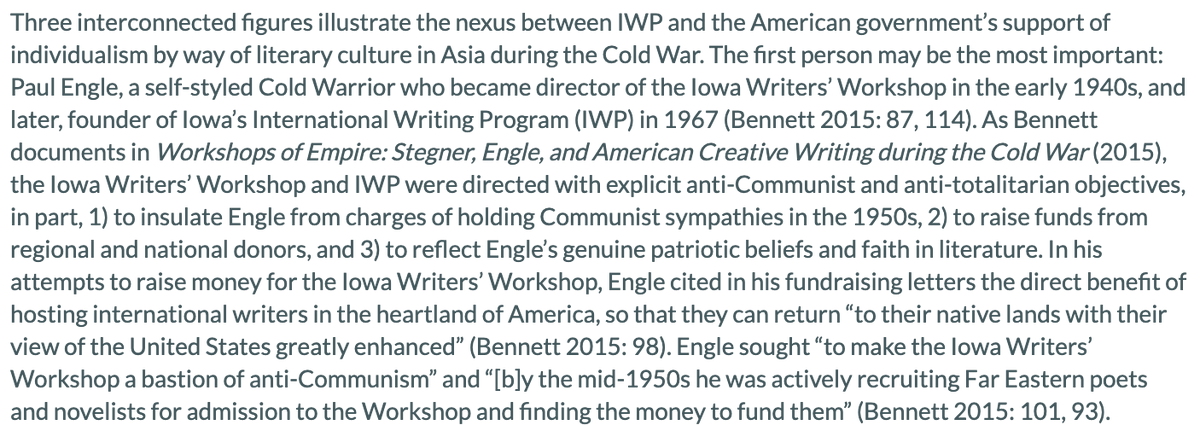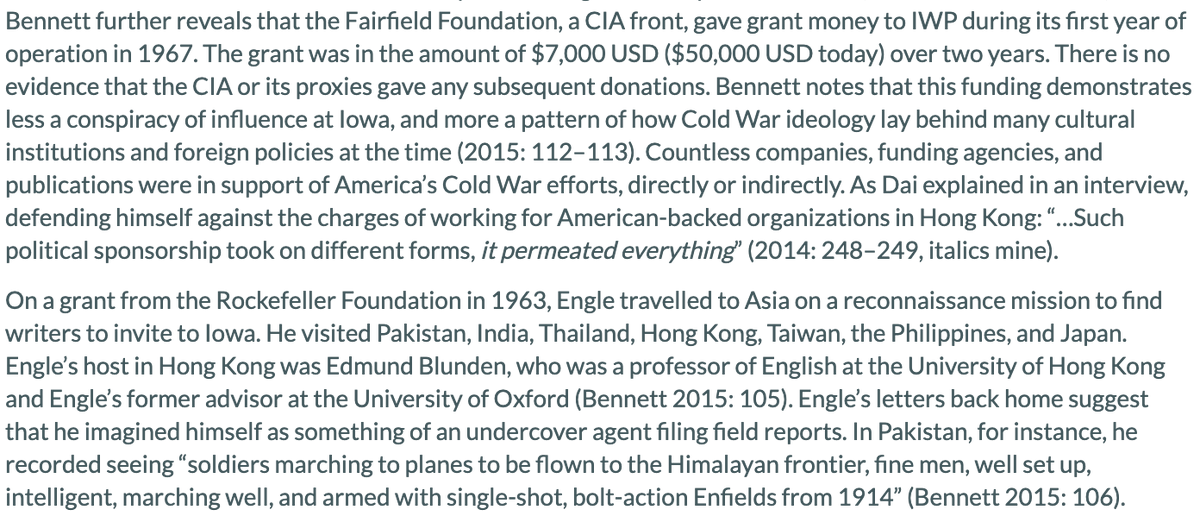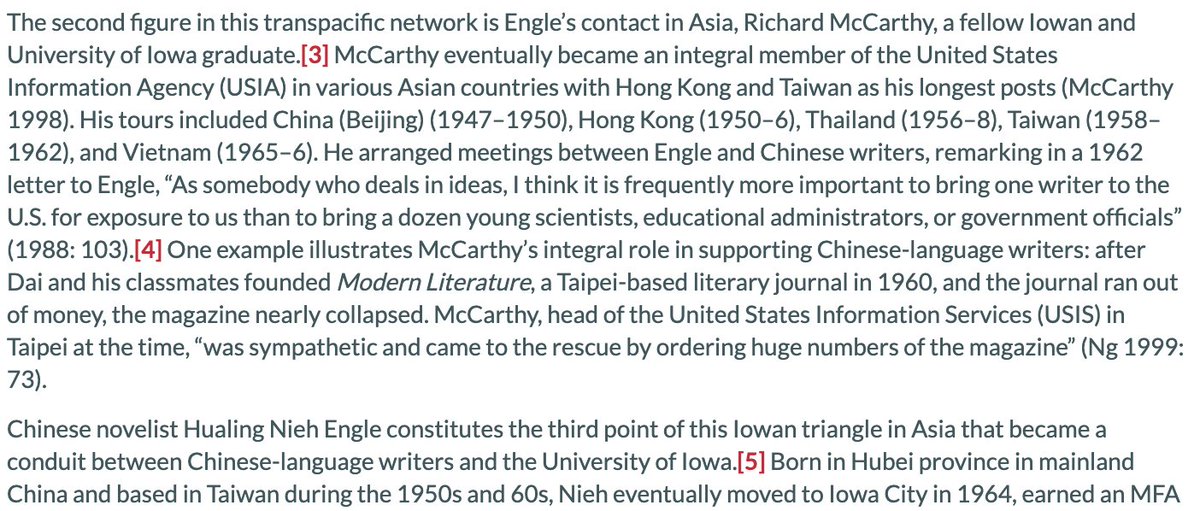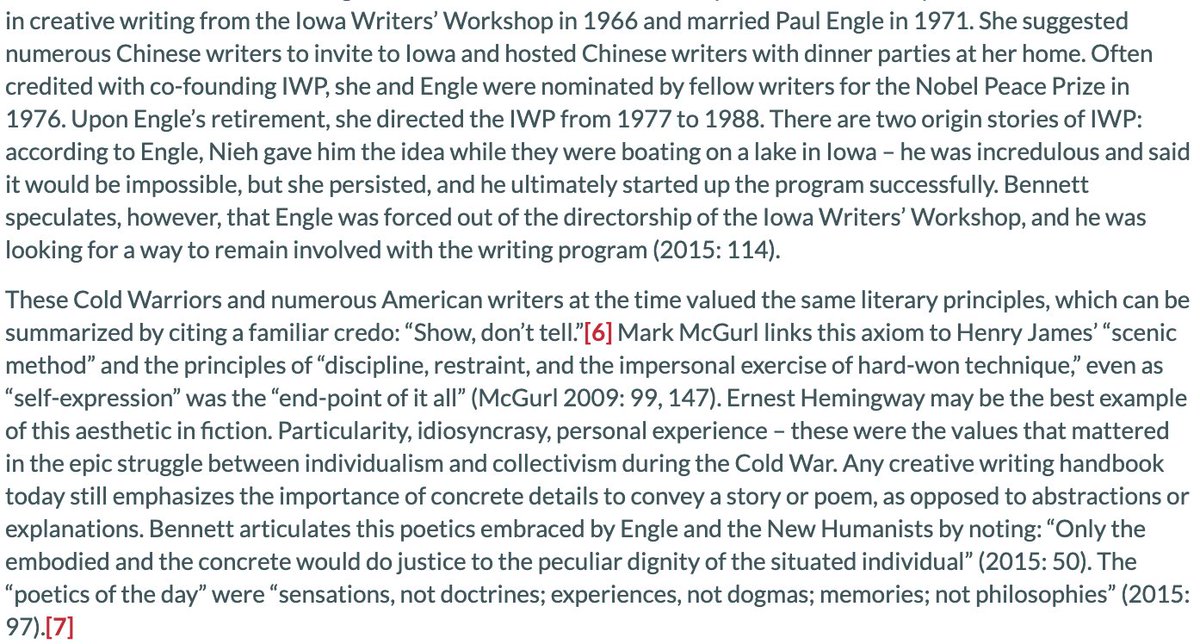Richard M. McCarthy was Eileen Chang's handler, planning her anticommunist output, and the shadowy figure that ran the ideological fight against communist influence in Chinese-language literature. An important figure in modern Chinese literary history, he's rarely acknowledged.
An Iowa boy with a degree in American literature, he was given a job at the US Information Service China while working at the Beijing consulate. It's interesting that work actually continued in the PRC—at least for a short time, until the reds booted them out.
He wound up in Hong Kong. This 1988 interview by the Association for Diplomatic Studies and Training Foreign Affairs Oral History Project is a bit vague. "We discovered Eileen Chang," he says, but forgets the second anticommunist novel she produced for USIS (it was Naked Earth).
In HK, McCarthy began his work with local writers, and restarting a program to translate American literature. The goal was to orient local elite public opinion toward American values, sell the anticommunist project there and to the diaspora, and fight communist brainwashing.
I recommend Chien-Chung Chen 陈建忠 and Mei-hsiang Wang 王梅香, writing on the "U.S. aid literary institution" 美援文艺体制 for more on what McCarthy was up to. Here's an example: the influence he had through funding magazines and selecting writers to study in Iowa.
McCarthy's Iowa connections are important: James Shea in "From Iowa City to Kowloon Tong: On the Cold War origins of creative writing pedagogy in Hong Kong" includes him a trio with CIA agent/Iowa Writers' Workshop founder Paul Engle and his wife, Hualing Nieh Engle 聂华苓.
Even after McCarthy decamped for Thailand, he was involved from a distance in USIS activities, and he laid the groundwork for sending Taiwanese and Hong Kong writers to Iowa's International Writing Program, and for the CIA to fund various literary projects in East Asia.
McCarthy's intention was not really funding brutally anticommunist writing, which writers in HK and especially TW were doing anyways, often with state funding, but to move literature away from politics completely, into the realm of the personal and the esthetic.
I encourage everyone to read Eric Bennett's Workshops of Empire: Stegner, Engle, and American Creative Writing During the Cold War. The domestic project to sever literature and politics reverberated out into territories under American influence.

 Read on Twitter
Read on Twitter